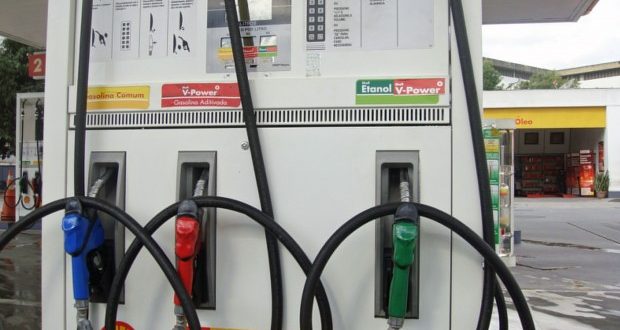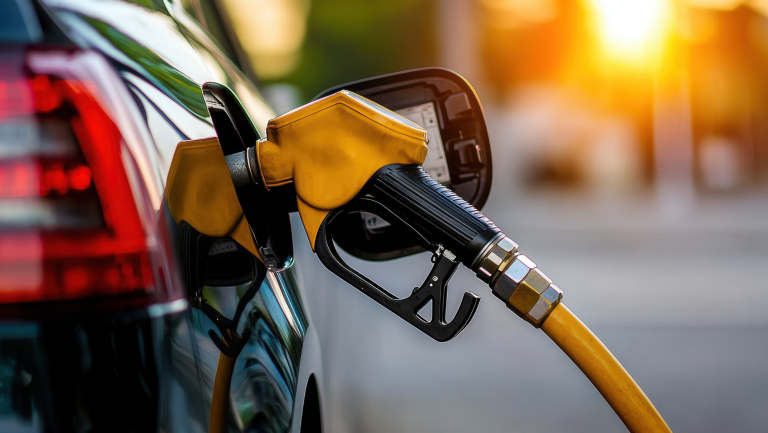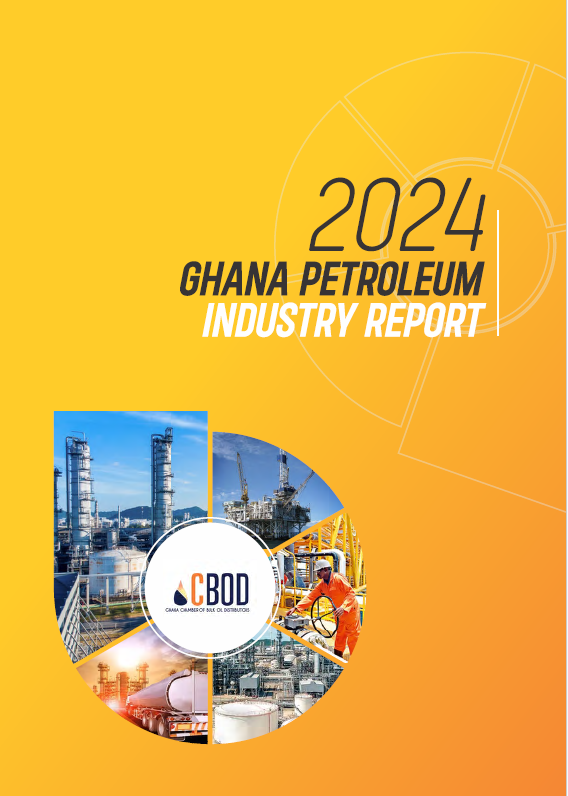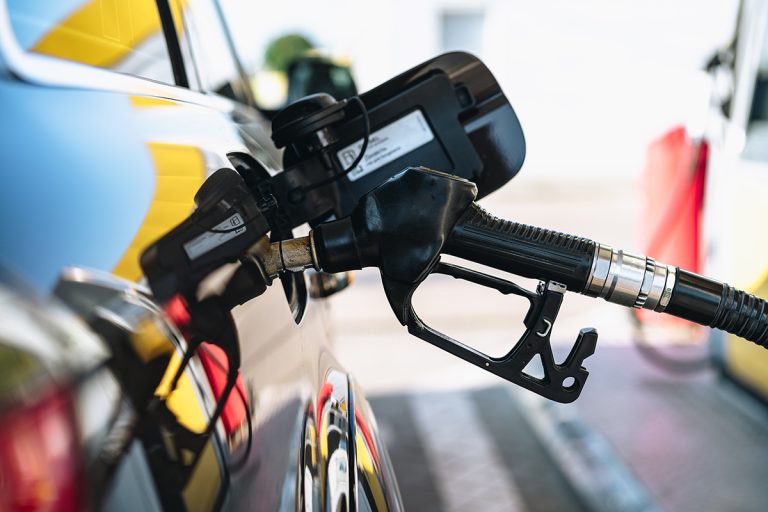The Chamber of Petroleum Consumers (COPEC) is asking Oil Marketing Companies (OMCs) in the country to reduce their ex-pump prices for consumers to reflect the sustained decline in the global crude oil prices.
According to COPEC, consumers could be benefitting from a reduction of between 10%-32% compared to the 2% that consumers have been given over the past few weeks.
Portions of a statement from COPEC which cited the nearly 30% decline in the global oil prices said, “It is our expectation in the coming few days that the various Oil Marketing Companies and the BDCs will ensure the Ghanaian is given nothing but the full benefit of these sustained reductions in fuel prices on the international markets.”
COPEC also indicated that the cedi’s relative stability compared to other trading currencies should warrant a drop in prices.
“Coupled with the steady decline in international oil prices, also is the nominal appreciation of the local currency, the cedi, which has recorded an appreciation of over 5% from earlier depreciation figures of over 5.85/$ to currently trade at below 5.40/$ according to latest BOG figures,” it said.
The concerns by COPEC comes on the back of a report by Bloomberg that price wars between Saudi Arabia and Russia has led to a drop in crude oil prices to about $28 a barrel as at Monday, March 9, 2020, the lowest in four years.
Meanwhile, COPEC wants Ghana’s price stabilization and recovery levy scrapped, explaining that its continuous imposition is inimical to the consumer.
“The PSRL must be immediately scrapped from the Price Build Up and a more sustainable source of funding be instituted for premix in order that the whooping 16p/litre charge on fuel prices can be dropped permanently to ease the pressure on pump prices immediately forthwith, we cannot continue to deceive the Ghanaian of a deregulated petroleum pricing environment which is somehow also micromanaged against the very people we expect to bear with when there are increases but someway somehow deny those same people any reductions when the indications point in that direction,” COPEC indicated.
[TUBE]https://www.youtube.com/embed/B24A4YLSAuo[/TUBE]
Find below the full statement
ENSURE PETROLEUM PRICES IN GHANA REFLECT THE DECLINE IN INTERNTATIONAL OIL PRICES AND A STRONG CEDI
The prices of Oil on the International Markets has seen a very steady decline since the beginning of January 2020 to date ( March ) due mainly to a decline in demand as a result of the raging endemic COVID 19 across the globe causing a huge slow down in global demand for oil especially in production factories across China as well as the ramping up of oil production by other Non-OPEC members across the world particulary the deployment of Shale production technologies in the United States of America (Energy Information Administration, 2020).
Between January and March, 2020, Gasoline prices have declined from $612/metric to current $496/metric, whiles Gasoil has declined from over $617 to current $502/metric, Brent crude oil price has also declined from $ 64 per barrel to $45.27 per barrel as at 6th March, 2020 reflecting 29.3% decrease (Oilprice.com). The West Texas Intermediate (WTI) crude prices has also declined from $63.27 per barrel in January, 2020 to $41.28 per barrel in March, 2020 reflecting 34.76% decrease (Oilprices.com).
Coupled with the steady decline in International Oil prices, also is, the nominal appreciation of the local currency, the cedi, which has recorded an appreciation of over 5% from earlier depreciation figures of over 5.85/$ to currently trade at below 5.40/$ according to latest BOG figures. The Bank of Ghana in January posited that the cedi in the first month of the year appreciated 0.3 percent against the dollar after its initial declined to same, made a 1.9 percent gain on the British pound while recording a 2.3 percent appreciation against the Euro and has since made significant gains against the major trading currencies.
The Chamber of Petroleum Consumers Ghana (COPEC GH), from a market analysis of the current indicative pump prices of both Gasoil and Gasoline for the first window of the current month under review ( 1st and 15th of March ) among some 63 OMCs have found that petroleum consumers are surprisingly still being charged rather too high although oil prices on the international markets have declined and the FX has appreciated significantly against the US dollar.
The implication of paying higher prices in the current window when prices should have declined at all pumps means that the expected reliefs petroleum consumers in Ghana should have benefited from the full price deregulation programme is hardly being realized nor sustainable and thus unexplainable as prices have have often headed south anytime these two indicators captured above indicate otherwise, consumers in the country are clearly not benefiting in anyway whatsoever from the observed sustained declines in international market prices and the performance of the local currency.
Further Findings
The application of the price stabilisation and recovery levy is currently serving an inimical contradictory purpose to it’s original purpose for which it was introduced, ie to gather some savings that could be applied to cushion Ghanaian consumers whenever world market prices become unbearable, or other geopolitical factors make fuel prices unreasonable to Ghanaian pockets to now become a revenue generation source that is rather applied needlessly to premix subsidies knowing very well the high levels of corruption that the whole premix programme is bedeviled with from frequent news of diversions to hoarding and resale by persons engaged in the process.
The Chamber found that international market prices on the average have cumulatively declined by between 10% to 32.03% between January and March, 2020, the National Petroleum Authority (NPA) on its website duly acknowledges that prices have declined by 9.65% between the last pricing window in February and the first pricing window March 2020 alone yet Ghanaian consumers have hardly seen anything beyond 1% within the period of reductions.
The NPA clearly agrees to the fact that oil prices are falling averagely by around 9%. Monthly within the period yet due to it’s own reintroduction of the price stabilisation and recovery levy by a full 14 and 16 pesewas per litre in the first window of February it is unable to insist on price reductions by the various Oil Marketing companies at the pumps.
The petroleum consumer in Ghana only benefited from an average decline from GH¢5.48 per Litre in January to GH¢5.40 per Litre in March for Gasoil representing 1.46%. The average reductions petroleum consumers benefited on Gasoline between January and March 2020 currently stands at 1.47% reflecting a change from Gh¢5.46 per Litre in January to GH¢5.380 per Litre in March. The implication is that while petroleum consumers globally should be benefiting by almost 30% declines, the Ghanaian consumer is this far only see reductions for only less than 2%.
The Chamber also finds the amount on the Price Stabilization and Recovery Levy (PSRL) is not only too high but hardly justifiable, the NPA under the present circumstances seem to be at liberty to apply and withdraw at will, and that has been used in many instances to curtail increases and reductions which works against the spirit of a full price deregulation programme which insists Government must have no hand in setting of prices but leave same to the forces of demand and supply.
The NPA is expected to among other things ensure fair pricing, embark on continuous research and regulate to bring about absolute fairness to both ends of the petroleum downstream but it is becoming increasingly difficult to see on a day to day basis how these key mandates are being pursued for the benefit of the ordinary Ghanaian who continues to expect nothing but a corresponding reduction in pump prices when the international market prices aand other key factors indicate so, A careful look at the prices at the pump in March juxtaposing with the strong performance of the Ghana cedi against the US dollar and the steady decline in international oil prices with a stay in prices at the pumps for Ghanaians suggest only one thing, consumers are simply being given a raw deal at the pumps currently and this must change without any further attempts to hoodwinked us with any grammar.
We further believe that given the above indices, that prices at the various pumps if not being manipulated and suppressed someway somehow should be should be selling at no more than the averages of GH¢4.60/litre currently instead of the above 5.38/litre
Conclusion
It is our expectation in the coming few days that the various Oil Marketing Companies and the BDCs will ensure the Ghanaian is given nothing but the full benefit of these sustained reductions in fuel prices on the international markets.
It cannot be justified under the current circumstances that the Ghanaian is still being charged for so high when the key indicators of pricing are all pointing to a downward trend, the Ghanaian consumer benefiting about only 2% reductions out of a possible 10%-32% within the period cannot be justified and this must change immediately.
Recommendation
The various Petroteluem Service Providers (Oil Marketing Companies and BDCs) must at all times ensure that local pump prices reflect the reality or adequate percentage changes in international oil prices Platt and crude (WTI and Brent) as they always seem to do when prices point to increases in the spirit of fairness to the Ghanaian consumer in a full price deregulated environment in practice currently.
The PSRL must be immediately scrapped from the Price Build Up and a more sustainable source of funding be instituted for premix in order that the whooping 16p/litre charge on fuel prices can be dropped permanently to ease the pressure on pump prices immediately forthwith, we cannot continue to deceive the Ghanaian of a deregulated petroleum pricing environment which is somehow also micromanaged against the very people we expect to bear with when there are increases but someway somehow deny those same people any reductions when the indications point in that direction.
Signed
Duncan Amoah Benjamin Nsiah.
Executive Secretary Pricing and Research
—citinewsroom





